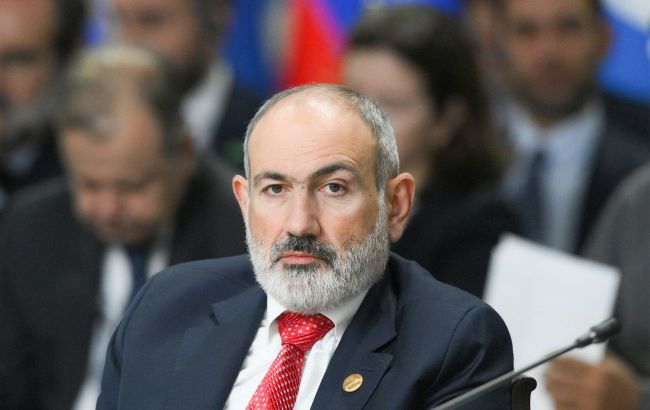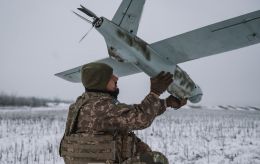PM on Armenia's suspension of participation in CSTO: We have passed the point of no return
 Photo: Nikol Pashinyan, Prime Minister of Armenia (Getty Images)
Photo: Nikol Pashinyan, Prime Minister of Armenia (Getty Images)
Armenia will not restore relations with the Collective Security Treaty Organization (CSTO). The country will not obstruct the decisions of other CSTO members, states the Prime Minister of Armenia, Nikol Pashinyan.
This response from Pashinyan came as a reaction to Russian President Vladimir Putin's statement that the CSTO could not intervene in the events in Nagorno-Karabakh. Recently, Putin declared that the CSTO did not intervene because there was no attack on Armenia.
Pashinyan reminded that earlier, CSTO members had stated that the borders of the Republic of Armenia were a "red line." However, when the conflict in Karabakh began, CSTO countries did not assist Armenia.
"My reaction, which I publicly voiced, was as follows: if the CSTO does not have an area of responsibility in Armenia and cannot show this line, then the CSTO as an organization does not exist. And that is why I refused to sign the final document of the CSTO summit in the fall of 2022. The situation around Karabakh has absolutely nothing to do with this. In the context of freezing Armenia's participation in the CSTO, we did not touch upon the Karabakh issue at all," Pashinyan stated.
According to him, Armenia has frozen its participation in CSTO activities, meaning it does not participate in the development of documents, does not make any proposals, and does not express its position on proposals.
"We are not simply vetoing any document because, in essence, we already consider ourselves outside of the CSTO, and let them make the decisions they want. We do not interfere in their affairs out of respect for our colleagues. But again, I say that the gap between these events and their public mutual statements makes Armenia's return to the CSTO increasingly difficult, if not impossible. I think we have passed the point of no return," Pashinyan concluded.
What preceded it
The CSTO (Collective Security Treaty Organization) is an international intergovernmental organization established to ensure collective security for its member states. Its members are countries that signed the Collective Security Treaty, also known as the Tashkent Treaty, which was concluded in 1992.
As of 2024, the CSTO has six member states: Russia, Belarus, Kazakhstan, Kyrgyzstan, Tajikistan, and Armenia.
Back in September 2023, Armenia criticized the CSTO for its inaction when Azerbaijan launched an operation on the territory of Nagorno-Karabakh. Following this, Armenia began to strengthen its ties with the West and distance itself from Russia.
According to Pashinyan, two CSTO countries assisted Azerbaijan in preparing for its operation against Armenia in 2023.
Later, Pashinyan stated that Armenia would "leave the CSTO and make the corresponding decision." At the same time, the prime minister promised that after this, his country would not return to the alliance.

